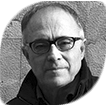
JURY SCHOOL PRIZE 8 and 10
Andreja Tutundzic works at the University of Belgrade, Faculty of Forestry, Department of the Landscape Architecture and Horticulture. Andreja has been working at the Town Planning Institute of Belgrade, among other projects on the development of the awarded Spatial and Master plans of Belgrade for 2021, as well as on defining of the contents and procedure for Belgrade biotope mapping. He is co- author of the Typology of Belgrade Landscapes for the Need of the Implementation of the ELC. His current research interests focus on education in landscape architecture, large-scale landscape design and green infrastructure planning. In the recent time, he was also engaged in the projects related to the issues of migrant crises. In those areas, he participated in many projects, including EU funded projects such as TEMPUS, ERASMUS and UNDP Cross Border Cooperation Programme. He was elected as IFLA Committee Chair on Education and Academic Affairs in two terms from 2014 to 2018 and was Former Vice President of the European Federation for Landscape Architecture (EFLA 2008-2011). Andreja is also a member of the IFLA Europe School Recognition Panel, and member of the Executive board of the Serbian Association of Landscape Architects (UPAS/SALA).

JURY SCHOOL PRIZE 10
João Nunes is a Landscape Architect with a great passion for drawing and understanding the processes of the world. In 1985, he founded the PROAP studio which, according to his philosophy, approaches landscape themes in a broad sense, intervening in the processes that the project integrates, using inputs from various disciplines and considering the landscape as a process in continuous transformation. The professional activity and didactics intertwine and enrich each other, contributing to the development of new lines of research and experimentation. Visiting Professor at several international universities (Harvard GSD, UPenn, OSU, Pamplona, Versailles among others), he is Full Professor at the Academy of Architecture of Mendrisio and member of several scientific committees. In 2013 he was awarded the 1st Chair of Excellence “Adalberto Libera” and in 2017 with the Gagliarid Prize - Cittá di Asti. In 2010 he published the monograph “PROAP - Arquitectura Paisagista”(Note), which summarizes the first 25 years of the studio, and in 2011 is co-author of “Lost Competitions” (Proap Editions). In 2017 he was organizer and director of “Cagliari Paesaggio”. Projects developed by Proap have received several national and international awards and have been several times finalists for the Prize “Rosa Barba” at the Landscape Biennial of Barcelona.

JURY SCHOOL PRIZE 10
The main objective of her work is the holistic approach of space within the framework of ecological – sustainable design, the project’s integration in the landscape with respect to the unique qualities and memories of each location (genius loci), and the socio-cultural conditions of place. Among the special aims of her projects are the design solutions emphasising on a close connection to nature and its processes, on the natural dynamics and their biodiversity, on vegetation as a structural spatial element. Conceiving built space and andscape as a unique entity might create places where humans feel involved, in harmony with their environment and are keen of taking the responsibility for its maintenance.

JURY SCHOOL PRIZE 10
Vice-rector of Infrastructure and Architecture of the Polytechnic University of Catalonia, is an University Professor and professor in ETSAB for graduate and postgraduate subjects. He has been invited as a teacher in about twenty prestigious international universities. Quality Award for University Teaching at the UPC (2011) and Jaume Vicens Vives Award. International teaching evaluator since 2015. For three decades, he has been part of the final project for the ETSAB and, since 2012, as president. Research Professor of the Urban Planning Doctorate Program of the UPC, distinguished with the Mention of Excellence (MEE 2011-0730). Director of seven doctoral theses cum laude, among them, Urban corners in the territory with extraordinary PhD award. Triennial research prize Lluís Domènech i Muntaner, Europa Nostra honor medal and Alejandro de la Sota Extraordinary Prize-20 Years of Biennials, modality of outdoor spaces: urban spaces, parks and gardens, interventions in the landscape and urban planning. Author of about twenty research books and more than a hundred scientific articles, book chapters and papers presented at international conferences. Reviewer of several indexed magazines. He has been the director of the Department of Town Planning and Planning of the UPC and has been awarded the National Urbanism Prize.

JURY ROSA BARBA 10
Teresa Moller is a well-known Chilean Landscape Architect that has been working in the field for the past 30 years. It has been a self-training journey, working on a variety of projects of different scales. Her work approach is unique, careful observation and awareness of the landscape is key for developing successful social-culture projects. Bringing nature accessible to people so they can connect and value nature around them is essential within her work philosophy. One of the most important aspects before starting a design is to consider what is on site and then what is needed to bring the experience of nature to people. She strongly believes in the power of simplicity. Chile benefits from such contrasting landscapes, wedged between the Pacific Ocean to the west and the Andes mountain to the east; it is a country that offers remarkable natural resources. She considers herself lucky of being able to work with such a diversity of landscapes, from the Atacama Desert to the lakes and glaciers of the south, as they have taught her everything and have been the setting for the majority of the projects in the studio. Every project is a direct and unique result of its environment.








